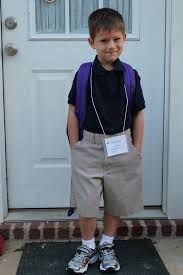Dreaming
When All Our Dreams Come True
Christmas is a great time to feel the pain of being alone.
Posted December 25, 2014
I'm starting up this blog after a year-long recess. I know that this is a good way to communicate with people who have struggled with addiction or struggled with family members who have struggled with addiction. As an ex-addict who's become a sort of addiction specialist, and as a neuroscientist who's studied the brain changes that go with addiction, I think I'll have lots to share with you.
But since it's Christmas, and Christmas holidays often lay insidious traps for addicts (active, ex- or recovering), let me start off the new season with some thoughts about the loneliness and insecurity that make up the dark side of the holiday spirit. I'll avoid the neuroscience for now and just focus on the human part.

For me, substance use and substance addiction were always a remedy for loneliness, abandonment, and disconnection. The formula in my child’s mind was a simple one: disconnection from someone you thought was there for you = isolation = danger!!! Opiates (my drug of choice) made me feel safe. Booze at least numbed the anxiety. Ever since being sent away to boarding school at the age of 15, and probably long before that, loss of connection was my primal fear. It’s why I became an addict. And it’s still my primal fear. I've been off drugs for over thirty years now, but those habits of thinking and feeling never go away completely. And I still have to be careful.
So here it is, Christmas, and I happen to be back in Toronto, enfolded in the bossom of family, waiting for this evening's festivities and associated pleasures, stresses, and strains.
And I'm reminded of some of the people I've gotten to know through writing and blogging about addiction, and in particular the unholy tether connecting family vibes with addictive urges. In my upcoming book I tell the story of "Donna." Her addiction to pharmaceutical opiates was more psychological than physical -- but that's the worst kind of habit. She did not use drugs continuously, but when she felt isolated, left out, and angry, without letting herself just feel those feelings and move on, that's when she was really at risk. That's when she would forge prescriptions or steal pills from friends and relatives. And risk losing a huge amount of affection and trust from those she needed most.

In preparation for her husband's fiftieth birthday the clan gathered, and there were parties, receptions, and dinners almost every day. Kind of like the Christmas holidays. Surrounded by old friends and family members she hadn't seen in years, feelings of alienation, of lost connection

and abandoned intimacy, welled up in her with surprising force. Seeing these faces again brought home an awareness of her own separateness, her aging, her sense of being different, with no one close enough to connect with or confide in.
So one evening, she picked up the familiar (and seemingly trustworthy) scent of drugs -- drugs that would relieve her of the need for closeness with others. The attraction grew in strength from hour to hour, deepening with every strained smile and superficial greeting. And finally she made a bee-line for the guest room, for the suitcase of a visiting cousin. While her cousin was in the living room schmoozing, she went digging through his toilet kit, looking for pharmaceutical opiates. Having given into her craving with such abandon, there was no stopping now -- just the familiar desperation of doing something morally repugnant to acquire what she strongly desired.

That's when her cousin came through the door. His face went from shock to anger in a very few seconds, and Donna was busted. Her addiction was out in the open for the first time ever, and she was completely devastated. Terrified of the reactions she felt she truly deserved.
The story has a happy ending though. Donna was indeed busted. Her husband and family finally saw the enormity of her "problem" -- but instead of rejecting her they helped her find treatment. She met with a very good psychotherapist, on their insistence, and she spent the next year figuring out what her child's voice longed for and how drugs promised to provide it. And she managed to quit. Not easily, not all at once, but successfully after all. And of all the contacts, insights, and resources that helped her quit, there was none as empowering as the knowledge that she really was lovable and forgivable after all. That, okay, she didn't like superficial chatter, but she was deeply interested in closeness with other people. And she could find that closeness, because quite a few other people were after the same thing.
So Happy Christmas to all, and don't give up on dreams that need a little work to come true.


